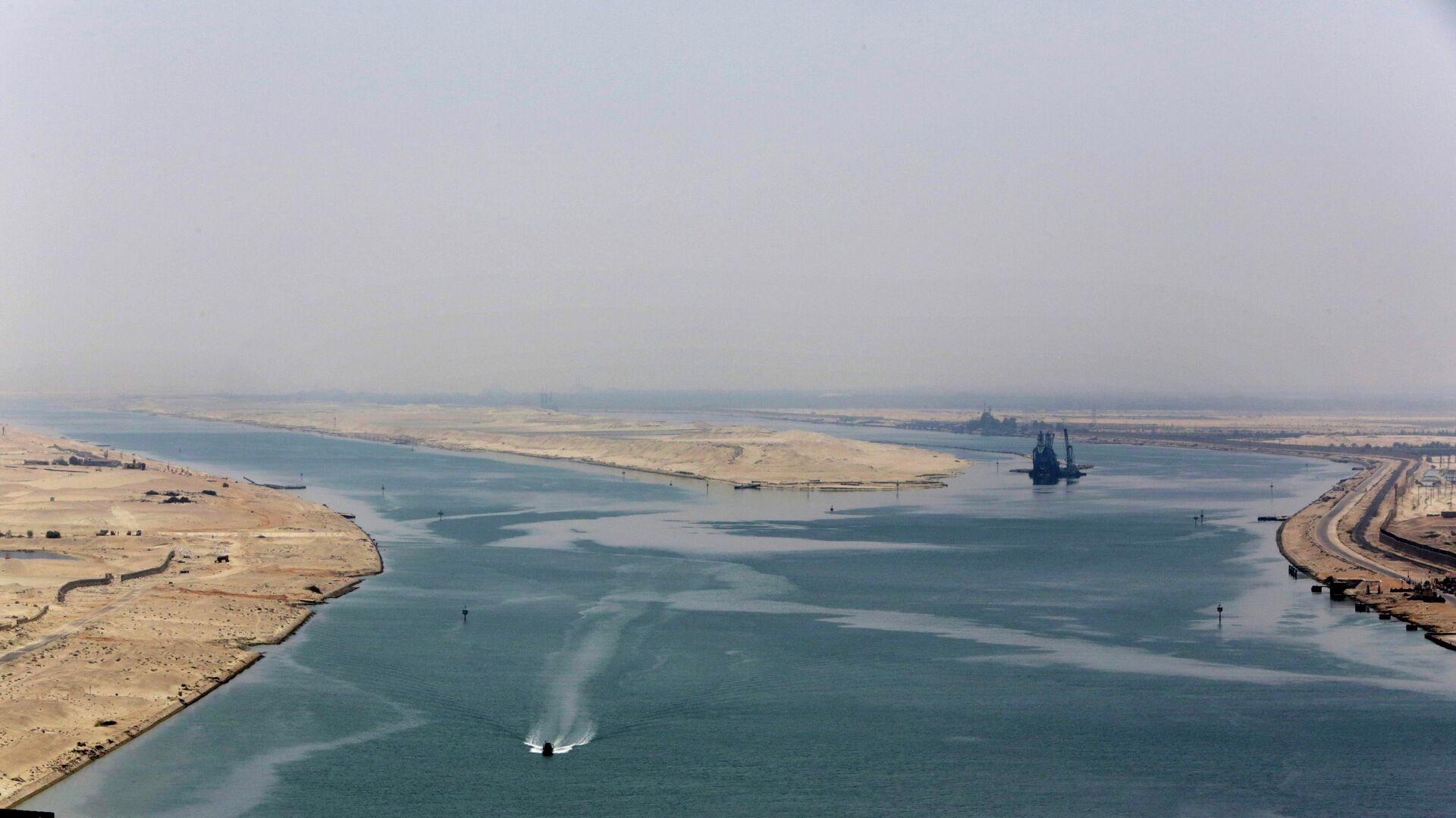‘Houthis Can Play the Long Game’: Suez Canal Shipping Revenues Cut Nearly in Half

© AP Photo / Amr Nabil
Subscribe
The total income for shipping firms last month dropped to $428 million in comparison to $804 million for the same period in 2023.
Following the conflict between Palestine and Israel, Yemen’s Houthis have launched a series of attacks on ships in solidarity with Palestine. Since then, revenue for Egypt’s Suez Canal has dropped by almost half in January, a recent report notes. Meanwhile, the number of ships now using the canal fell by 36%.
But Osama Rabie, the Suez Canal Authority chief, says that the Suez Canal remains the “best, fastest and safest” route while the alternative—the Cape of Good Hope—does not offer services to ships if they break down, is unsustainable and difficult to navigate. The US and the UK have launched airstrikes at the Houthis, but it appears that the Shia Islamist organization’s actions won’t end any time soon.
Thomas C. Mountain, a historian and independent journalist, says that while Egypt is experiencing economic instability, the Houthis are attacking shipping “symbolically”.
“There's two strategically critical choke points in this European-Asian trade route. One is the Bab al-Mandab between the Red Sea and the Indian Ocean, which Ansarallah is controlling, and the other is the Suez Canal,” said Mountain. “Egypt has just been staggering from year to year; from one emergency bailout by the IMF to the other, the Islamic attacks on their tourism infrastructure, there's been a major dampener on foreign policy reserves—which they've never fully recovered from—and then the COVID-19 shutdown pretty much hammered them as well.”
“So Egypt is between a rock and a hard place. I've been saying this for a while, but it seems to be the screws are tightening in the blockade of the Red Sea by the Houthis who have got them on the back foot.”
Sputnik’s Garland Nixon then asked Mountain about the geostrategic importance of the Red Sea. Mountain believes there has been a military blockade of the Houthis for a “long time”.
“The Houthis themselves have been pretty much symbolically attacking shipping—they fire one missile. If you want to seriously damage a ship and get through the US defenses, you have to fly six or eight at one time and then a few will get through. So this has been more of a symbolic attack rather than serious military attacks,” Mountain stressed.
“Of course, I think they've exaggerated the extent to which the Houthis actually have a major missile force. I think they're in it for the long game. There's been a military blockade of the Houthis for a long time,” said Mountain, adding that the Houthis are pressuring the US “very effectively”.
“How long can the US keep these ships on post? They can't sit there forever, they have to rotate them out, they're going to be breaking down under distress they're not used to. They have to reload missiles.”
Sputnik’s Wilmer Leon noted that the ongoing incident is part of a “bigger mess” as US President Joe Biden himself has admitted that airstrikes launched by the US and the UK will not be enough to deter the Houthis’ actions.
“Yeah, the incompetence of US foreign policy so-called 'experts' has been on display now for some time,” said Mountain. “It's like trying to fight a war with the Houthis, which have been through a seven-year war with the Saudis (which is armed by the US) and now they're going to come in and bomb the Houthis.”
“The Houthis have developed all the defenses underground throughout the Saudi bombardment. So they're not going to be very effective against them,” he continued.
“And the Houthis don't really have to do much damage. All they have to do is occasionally hit a ship or get close to a ship and scare the h*** out of the insurance companies to force them to go around the Cape of Good Hope in southern Africa, which is, again, a very dangerous route: there are no facilities if any ships break down to repair them out there. So [if] one of these big tankers breaks down in the middle of the Indian Ocean, or off the southern Atlantic, what are they going to do?”
“The Houthis can play the long game. I see Egypt has been like the policeman on the Suez Canal, and the Americans fund the Egyptian military to the tune of $1.5 billion a year, that's basically the salaries of the Egyptian military,” Mountain explained.
“They have a conscript army, but their officer core---whose loyalty to [Egyptian] President [Abdel Fattah] al-Sisi is critical---US control of the Suez Canal has to be bought and paid for. So Egypt is shaky, and I think Egypt is looking around to try to get out of this IMF death trap they've fallen into, and they're reaching out to the BRICS to try to get financing for the BRICS bank, but in the meantime the pressure of the shutdown of the Suez Canal is really hammering them.”
This summer, it was reported that Egypt had hoped its inclusion in the BRICS bloc would ease its shortage of foreign currency. However, analyst said the economic shift for Egypt would not happen in the near term.
The Egyptian pound recently experienced a significant appreciation, growing by 39% against the US dollar in just a few days thanks to an agreement that was reached between the IMF and Egypt. The agreement grew the two parties’ existing deal from $3 billion to over $10 million.
However, one media outlet reports that Egypt's total external financing needs are expected to surge over the next four years due to “larger repayment obligations on medium and long-term loans”.

